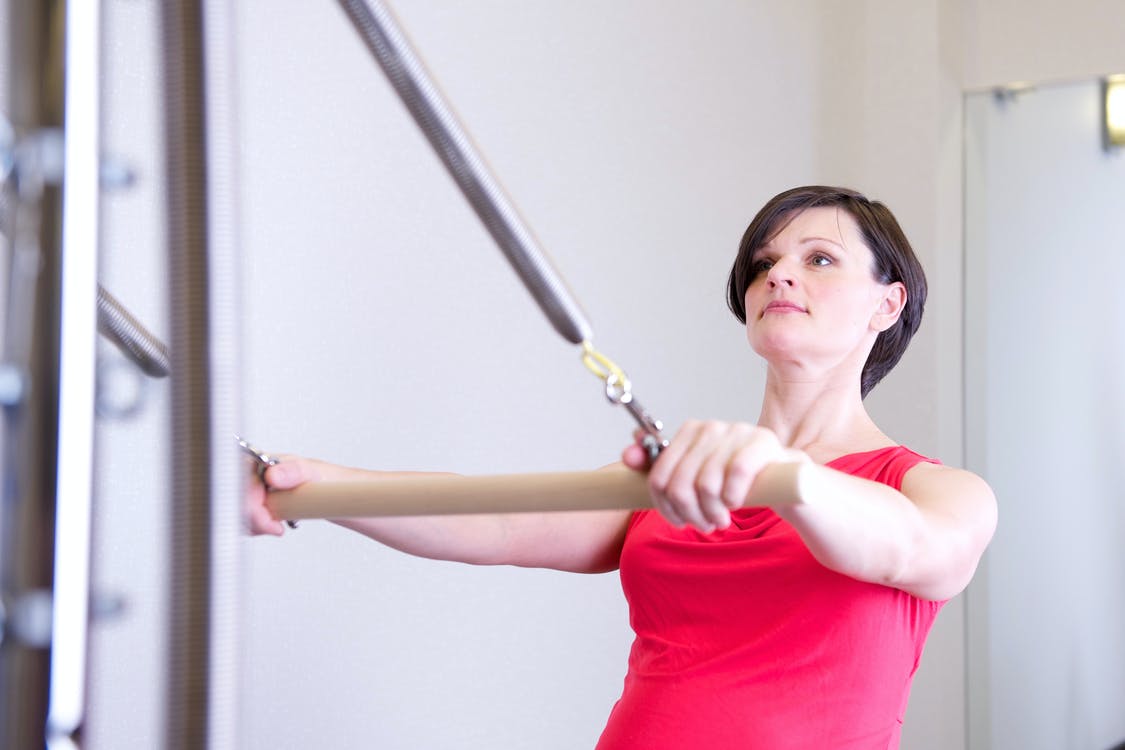
Femcompetitor.com, grapplingstars.com, fciwomenswrestling.com, fcielitecompetitor.com, fciwomenswrestling2.com Liza-Summer-pexels.com-photo-credit
November 23, 2021,
Though many may not be proud to admit it, but are you lonely?
This subject comes up more often during the holidays. For good reason.
The myriads of holiday films displaying warm loving families, sharing stories, re-living past memories and eating home cooked meals by the fireplace are wonderful to watch but perhaps less so, if you live alone.
Then there are those holiday commercials as well.
Many Americans now live alone.

The Health Systems Bureau encompasses a diverse set of programs focused on protecting the public health and improving the health of individuals.
At their home hrsa.gov, they educate, “Loneliness and social isolation can be as damaging to health as smoking 15 cigarettes a day, researchers warned in a recent webcast, and the problem is particularly acute among seniors, especially during holidays.
Two in five Americans report that they sometimes or always feel their social relationships are not meaningful, and one in five say they feel lonely or socially isolated. The lack of connection can have life threatening consequences, said Brigham Young University professor Julianne Holt-Lunstad, who testified before the U.S. Senate in April, 2017 that the problem is structural as well as psychological.”
These statistics are not surprising since this research has been around for decades.
What is changing in our time period is the numbers associated with living alone.

HRSA continues, “The average household size in the U.S. has declined in the past decade, leading to a 10 percent increase in people living alone. According to the U.S. Census Bureau, over a quarter of the U.S. population — and 28 percent of older adults — now live by themselves.”
Do you fall into that category? Some in our circle do.
If you are lonely, recognizing that you are is a good sign. Why?
You can begin to take steps to categorically reduce your mortality risks. We have had these discussions and there are some things that you can artificially do to enhance your life and categorically improve the facets of being alone that may affect you the most.
HRSA summarizes, “The good news is that friendships reduce the risk of mortality or developing certain diseases and can speed recovery in those who fall ill. Moreover, simply reaching out to lonely people can jump-start the process of getting them to engage with neighbors and peers, according to Robin Caruso of CareMore Health, which operates in 8 states and the District of Columbia with a focus on Medicare patients. Her “Togetherness” initiative aims to combat “an epidemic of loneliness” among seniors through weekly phone calls, home visits and community programs.”
There is nothing like personal experiences that may be helpful to others.
Here is what we have learned to do to reduce being lonely, even if we live alone.
- Eat well. No matter what issue you have going on in life, your health is of primary importance if you are older and live alone. Get regular checkups regarding cancer and heart screenings. Do your preliminary work first. Make sure that you are eating salads and reducing the consumption of fast foods. Take your vitamins as well. This is an important starting place.
- Regular Exercise. If you can afford it, join a gym. Working out is wonderful but working out surrounded by a group of people is better. Even if you are watching for eye candy, that can be fun too. Casual conversations with the positive minded regulars can build your spirits.
- Engage in hobbies or find a passion for a business that you love. If you play tennis, going to the courts on a regular basis and socializing can be very health strengthening, especially if you don’t take it too seriously and laugh a lot. Primarily during doubles.
- Talk to a therapist. We have a friend who likes talking to a therapist of the opposite sex because he can bounce ideas off of them without being judged and actually have someone intelligent to talk to.
- Get a massage. If it is within your budget, see a legitimate Massage Therapist once or twice a month. Why? For the warm human touch. It can do wonders.
- Get together with casual acquaintances for lunch. It may be a little bit of work but besides the casual conversation and good food, you get to see other people engaging.
We have found the above works well to reduce the state of loneliness. We can’t say enough, find something to be passionate about to keep your mind engaged.
Notice we didn’t talk about dating Apps. The risk there is that you can meet someone with an agenda, especially if they know you have money, who can bring very bad things into your life when your health can stand it the least.
Yes, we understand nothing ventured, nothing gained, but before you venture in that direction, perhaps improve and strengthen your life situation first.
In this situations, we also like to get the insights of others, especially professionals who add their perspective to ours.
We have a visiting female writer with some fantastic suggestions.
Dr. Linda Hancock is a communicator! She serves as a consultant for media and writes columns for newspapers in two provinces. Dr. Linda is the author of “Life is an Adventure…every step of the way” and her newest book “Open for Business Success”.
She has earned degrees in Arts, Social Work, Education and Psychology to the Doctoral level and states that she had to spend her time and money somewhere because she doesn’t golf!
Linda has given presentations at annual meetings, fundraising dinners and community events for professionals, businesses, students and school personnel. She has also prepared and provided workshops on a number of topics for organizations.
Dr. Linda is a Registered Psychologist, Registered Social Worker and Registered Family Mediator (Separation and Divorce Specialty) who has a private practice specializing in clinical, counselling and forensics competencies.
She is a respected therapist, mediator, speaker, author, educator, coach, columnist and consultant who lives in Calgary, Alberta. Her favorite role, however, is as mentor to the seven beautiful individuals who call her grandma.
Here is her suggestion.
Loneliness – Types and Strategies

Winter can be a difficult time, especially when the weather steals our freedom. It isn’t easy to travel when the roads are icy and the temperatures are plummeting. Many people are afraid of falling and are therefore indoors more.
The pandemic that began in 2021 has brought with it a number of restrictions that tend to isolate people. Those who I have found to be most vulnerable are seniors who live in their homes. They don’t have the advantage of interacting with others personally and frequently do not have computer skills to reach out. Unlike those who live in a condo, they don’t even have opportunity to greet others or wave when going down a hallway or meeting at the mailbox.
I have been thinking about those I care about who are struggling. Even though they have good health and financial security they are desperately lonely. A phone call isn’t the same as a hug and having twenty-four hours a day without contact can be very empty.
There are four kinds of loneliness:
- Isolation – Feeling alone because friends and loved ones are at a distance.
- Detached – Not having any family, friends or company.
- Dissociation – Being in a crowd of people but not connecting.
- Lacking Purpose – Not have anyone to care for or any tasks to perform.
Distance due to contagious illness is usually temporary. Retirement may lead to a period of disillusionment. Death triggers grief. Moving requires adjustment.
Although there are several factors that can contribute to loneliness, psychologists generally agree that loneliness is actually a state of mind. It is difficult to talk someone out of loneliness. That is just theory and will evaporate after the conversation. On the other hand, activity changes the focus and allows the individual to become involved in projects.
I am fortunate that I have always been my own best friend. I keep myself busy with things like cooking, crafts, music and canasta. Learning French keeps my mind sharp and because I am curious, I am able to use the internet to research topics.
Here are some tips to help reduce loneliness:
- Look for someone who is lonely and interact with them. That way you solve two problems!
- Watch for individuals who are living alone in their own house and check in with them regularly.
- Think about your blessings rather than losses.
- Rejuvenate hobbies that you enjoyed in the past.
- Say what you want – not what you don’t want.
- Join an internet group of individuals with similar interests.
- Write out your family history. This will keep you busy and be a treasure for generations to come.
- Write one letter or phone one person a day who you can encourage.
- Find a new recipe and make it.
- Plan an activity that you will do when spring comes.
My uncle, who was a Queen’s Bench judge had a sign on his desk that read “I complained when I didn’t have shoes. And then I met a man who didn’t have feet”.
Change your state of mind and change your life!
And now I would like to invite you to claim your Free Instant Access to a complimentary list of 10 Steps to Making Your Life an Adventure when you visit http://lindahancock.com
From Dr. Linda Hancock, Registered Psychologist and Registered Social Worker
Article Source: https://EzineArticles.com/expert/Linda_Hancock/152728
Article Source: http://EzineArticles.com/10399307
~ ~ ~
OPENING PHOTO Femcompetitor.com, grapplingstars.com, fciwomenswrestling.com, fcielitecompetitor.com, fciwomenswrestling2.com Liza-Summer-pexels.com-photo-credit
https://www.hrsa.gov/about/organization/bureaus/index.html



